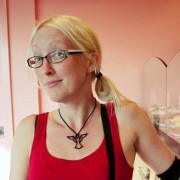Academic Writing (WS 2015/16)
Academic writing - how to create good texts (WS 2015/16)
Teacher: Dr. Melanie Lynn ConradFor many young scientists writing is the most difficult part of research work. Poor structure, breakneck formulations and unclear argumentation lead to texts which are not too user friendly. However, for the success of academics it is essential that the content is successfully conveyed to the relevant target groups – from the subject community to the wider public.
The methods and instruments of scientific writing can be learnt. With a few select mechanisms for structuring and techniques for building arguments, it becomes possible to articulate even complex data clearly and comprehensibly. Coherently built up and convincingly formulated, even academic texts can be an exciting read!
In this workshop the process of academic writing is highlighted from the first idea through the structuring and formation of the text to its completion. The participants engage with the content related, formal and organisational aspects of writing and train their text competency with exercises.
Topics
- Abstract, article, thesis:
Text types and reasons for writing in academia - From idea to text:
Topic selection, structure, argumentation - Rummaging, digging, serving it hot:
Research strategies - Writing as a process:
Utilising creative bursts – avoiding blocks - The eye reads too:
Convention and form - Academic writing:
My next steps - Workshop topic:
My next steps
Target group
Doctoral students who are actively working on a research project (i.e. the research proposal has been written and approved). The course can be attended at any stage of the doctoral work, to greatest advantage during the first half of the project.
Maximally 12 participants.
Course instructor

Melanie Lynn Conrad PhD, Berlin, was born in Vancouver, Canada where she studied biology at the University of British Columbia. Presently working as a postdoctoral researcher studying tuberculosis, her field work in India and years spent abroad have honed her cross-cultural communication skills. She has over 10 years of experience in scientific writing and presentation – which covers everything from paper and grant writing to explaining her research to her grandmother.
Requirements
Solid knowledge of the English language is required.
Target date
Part 1:
Tuesday, December 1, 2015
Starting: 9:00 a.m.
Ending: 5:00 p.m.
Course room of the BCF, Hansastr. 9a
Part 2:
Wednesday, December 2, 2015
Starting: 9:00 a.m.
Ending: 4:00 p.m.
Course room of the BCF, Hansastr. 9a
Comments of course participants in 2013
"I realized it was possible to think more objectively about various aspects of writing (especially papers). This narrowed things down for me and made it the best part of the course."
"The course contents were oriented very effectively. There was a good flow in topics."
"I found the excursion to "How to explain science to non-scientists" very important."
"I liked the atmosphere. No problems to ask "stupid" questions. It was way better than my last scientific writing course."

